How to Build a Keyword List: Tips for SEO Success
- Chase McGowan

- Jul 31, 2025
- 13 min read
Let’s be honest. A proper keyword list isn’t just a massive spreadsheet of high-volume terms. It’s a strategic asset built around the high-intent phrases your best customers are actually typing into Google. It's about finding the why behind every search, focusing on quality over sheer quantity.
Why Your Current Keyword List Is Failing You

Most keyword lists are just digital paperweights—giant, bloated spreadsheets that look impressive but do nothing for your bottom line. It's the classic agency move: dump thousands of keywords on a client to create the illusion of work, focusing on vanity metrics instead of real business impact.
So many businesses fall for this. They believe a bigger list means more opportunities. The reality? This approach just burns through ad spend, dilutes your SEO efforts, and creates a massive disconnect from the people you actually want to reach. You end up chasing empty clicks, not profitable conversions.
The Myth of the Massive Keyword List
The core problem here is the "bigger is better" fallacy. I've seen agencies hand over 10,000-keyword data dumps to justify their retainer fees. But what real value does a generic term like "shoes" (with millions of monthly searches) have for a local boutique that specializes in handmade Italian leather loafers?
Almost none. It's just noise.
This is where the difference between an over-priced agency and a hands-on, expert consultant becomes crystal clear. My goal isn't to collect every keyword under the sun. It's to build a lean, powerful, and strategic asset for your business.
As a Google Ads consultant, I've seen it time and time again: a focused list of 100 high-intent keywords will consistently outperform an agency's generic 10,000-term spreadsheet. It’s about precision, not volume.
Shifting your mindset from collection to curation is the first step toward building a keyword list that actually drives revenue.
From a Cluttered List to a Clear Strategy
See, a keyword "list" is just a random collection of terms. A keyword strategy, on the other hand, is a deliberate plan to attract the right people at the exact moment they're ready to buy. It requires a much deeper understanding of your business, your margins, and your customer's journey—a level of detail bloated agencies simply don't have the time or specialized focus for.
Here’s how they stack up:
Bloated Agency List: Chases broad, high-volume keywords.
Expert-Led Strategy: Prioritizes terms that signal clear purchase intent.
Bloated Agency List: Measures success with vanity metrics like traffic and impressions.
Expert-Led Strategy: Measures success with what matters: leads, sales, and ROI.
Building this kind of strategic list is the foundation of any successful digital marketing campaign. The real opportunity isn't in the broad, competitive terms. It’s in the niches. In fact, roughly 95% of all keywords get 10 or fewer searches per month.
These are the specific, long-tail phrases that big, lazy agencies completely ignore. And since 68% of all web traffic originates from search engines, capturing even a tiny sliver of this highly targeted traffic can be a total game-changer. You can dig into more detailed SEO statistics to see the full picture.
Ultimately, your goal isn’t just to be found—it’s to be found by people who are ready to pull out their wallets. This guide will show you exactly how to build that kind of powerful, profit-driven keyword list.
Finding Seed Keywords Your Competitors Miss
Most keyword research starts with the same old, tired, product-focused terms. It’s the lazy approach I see bloated agencies take all the time, and it’s a surefire way to get stuck in a bidding war for generic keywords that everyone else is chasing. You just end up burning cash without seeing any real return.
Frankly, that's a losing game.
My process starts somewhere completely different: inside your customer's head. Before I even think about opening a keyword tool, I get a deep understanding of your ideal client. This isn’t about guesswork; it's about customer empathy. I don't just brainstorm what you sell—I uncover what your customers actually need and the exact language they use to describe their problems.
This is how we find "seed" keywords rooted in real-world psychology, not just a generic service list. It’s the difference between targeting a broad term like "PPC agency" and a high-intent phrase like "why is my google ads cpc so high". The first is a commodity; the second is a desperate cry for help from a qualified lead.

Reverse-Engineering Your Competitors' Playbook
Once we’ve mapped out your customer’s mindset, it's time to turn our attention to the competition. But I'm not just glancing at their homepage copy. As a hands-on Google Ads consultant, I surgically dissect their paid and organic strategies to see what’s actually making them money—and more importantly, where they're dropping the ball.
Large, impersonal agencies often lack the specialized focus to dig this deep. They pull a surface-level report from a tool like Ahrefs or Semrush and call it a day. I treat competitor analysis like a treasure hunt, zeroing in on the profitable keywords they are actively spending money on, because that shows proven intent.
By reverse-engineering their Google Ads campaigns, we can see the exact terms that are valuable enough for them to pay for, day in and day out. This isn’t theory; it’s a strategic roadmap built on their ad spend. We identify the high-commercial-intent keywords driving their conversions, giving us a battle-tested starting point.
Uncovering the Gaps They Ignore
The real advantage, however, comes from finding what they’ve missed. Agencies focused on volume and scale almost always overlook the nuanced, specific phrases that signal a user is deep in the buying cycle.
These are the goldmines.
To put this into practice, I use a simple framework to move from broad customer problems to specific, actionable seed keywords. It helps organize your thinking around what the customer is actually trying to solve.
Seed Keyword Generation Framework
This table shows how we translate customer-centric thinking into powerful seed keywords that your competitors have likely overlooked.
Customer Focus Area | Generated Question | Potential Seed Keyword |
|---|---|---|
Pain Points | "Our ad agency isn't getting us any leads. What's wrong?" | "google ads not generating leads" |
Desired Outcomes | "I need more qualified phone calls from my ads, not just clicks." | "how to get phone calls from google ads" |
Budget Concerns | "Why did our cost per click suddenly double last month?" | "sudden increase in google ads cpc" |
Comparison Shopping | "Is it better to hire a freelancer or an agency for Google Ads?" | "google ads consultant vs agency" |
This approach systematically uncovers the language your real customers use when they're actively looking for solutions. It’s how you build a keyword list that bypasses the crowded, overpriced main highways and instead travels the more direct—and profitable—side roads.
This is how you gain an immediate, decisive edge before you’ve even spent your first dollar on ads.
Expanding Your List with Smarter Tactics
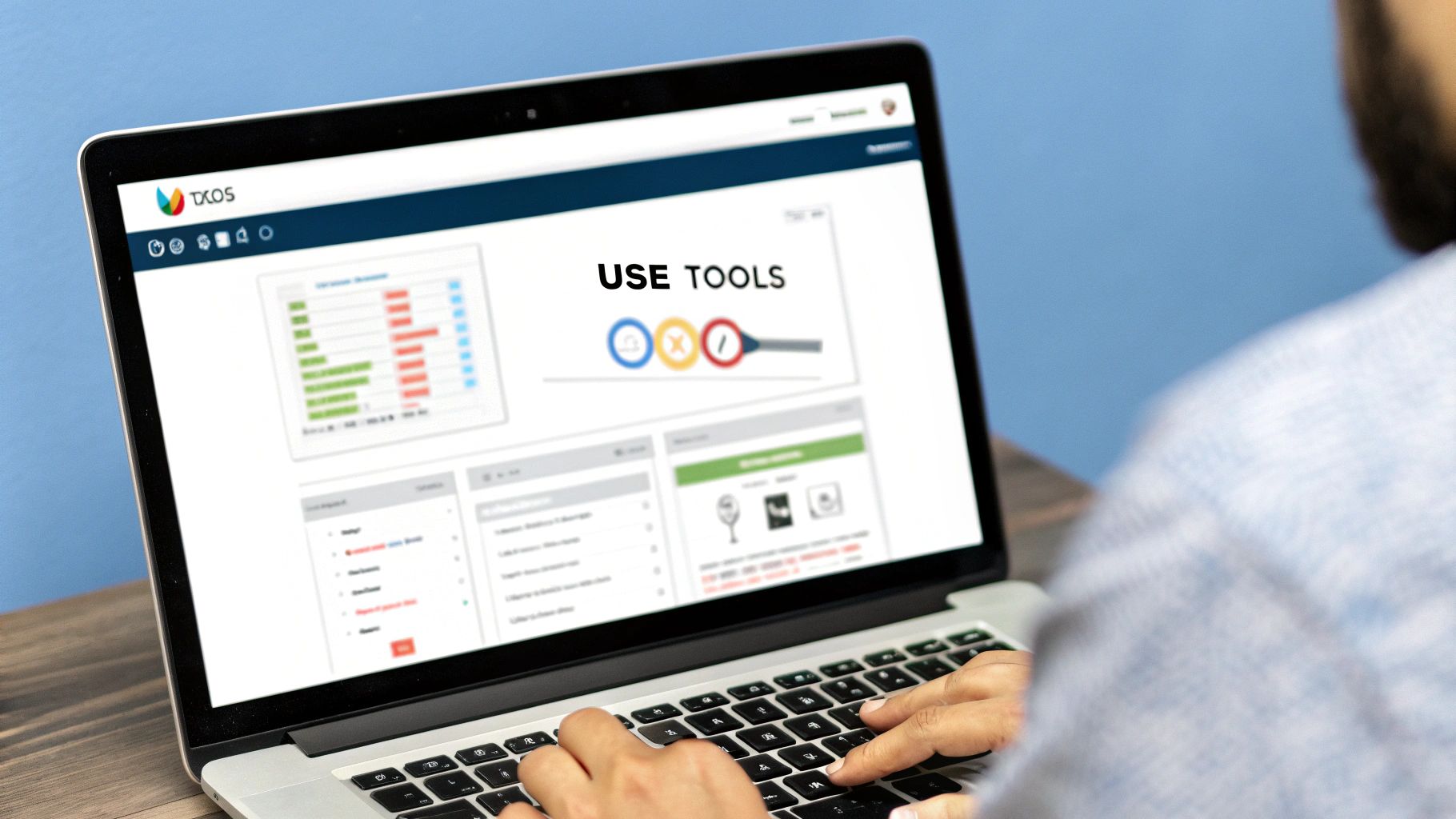
Once you have a solid set of seed keywords, the temptation is to dump them into a tool and export the biggest list you can get. That’s the classic agency move—it prioritizes volume over value and leaves you drowning in a messy, unfocused spreadsheet.
My approach is different. It’s about surgical expansion, not a data dump. This is where we bring in heavy-hitters like Ahrefs, Semrush, or even the free Google Keyword Planner, but we use them with clear intention. The goal isn’t to find more keywords; it’s to find the right ones. We’re hunting for long-tail variations and question-based queries that signal a user is getting close to pulling out their wallet.
Cutting Through the Noise with Strategic Filters
Anyone can generate a list of 5,000 related terms. The real skill is knowing how to instantly filter out the 4,950 that are totally worthless to your business.
The moment I plug seed keywords into a tool, I apply a series of filters that most agencies are too lazy or inexperienced to bother with. It’s a simple discipline that makes all the difference.
Here’s a quick look at my process:
Keyword Difficulty (KD): I’ll often set a maximum KD score to find achievable ranking opportunities, especially for newer sites. Why get into a street fight for one high-difficulty term when you can dominate ten lower-difficulty ones?
Word Count: I filter for keywords with four or more words. This is my go-to trick for instantly surfacing high-intent long-tail keywords. These are the queries that convert.
Question Modifiers: I specifically hunt for queries containing words like "how," "what," "why," or "cost." These are direct signals that a user is deep in the research or consideration phase.
Applying these filters transforms a bloated, overwhelming list into a tight, actionable set of high-potential targets. It’s what separates a focused, expert consultant from a process-driven, overpriced agency.
The most profitable keywords are rarely the most obvious ones. They are the specific, nuanced questions your ideal customers are asking. A simple filter for "cost" or "pricing" can immediately highlight transactional intent that broader searches completely miss.
These tools are getting smarter every day, which reflects a massive industry shift. The artificial intelligence market, projected to hit $190 billion, is reshaping digital marketing. AI-driven features in keyword tools now help automate this kind of precise analysis, making it easier to find valuable terms based on intent, trends, and competition. You can read more about how AI is shaping the future of SEO keyword research.
Finding Keyword Gold in Unconventional Places
Keyword tools are fantastic, but they only show you what people are typing into a search bar. The real gold is often hiding where your customers are having actual conversations.
This is a step agencies almost always skip because it can’t be easily automated or scaled. For a hands-on consultant, it's a treasure trove.
Here are a few of my favorite unconventional sources:
Reddit & Quora: I search for my client’s topics and just read the threads. I’m looking for the raw language people use—the slang, the specific phrasing, the points of frustration. A generic search for "small business payroll" might lead to a Reddit thread where users are complaining about "hidden fees in payroll software." Bingo. That's a perfect long-tail keyword.
Customer Support Logs: I always ask clients for access to their support tickets, live chat transcripts, or even sales call notes. The questions your own customers are asking are the most valuable keywords you’ll ever find because they come with proven relevance.
"People Also Ask" Section: This Google SERP feature is a direct window into related user queries. I mine this section for every primary keyword to build out content that covers a topic from every important angle.
Mapping User Intent to Maximize ROI
Having a big list of keywords is just the starting point. The real money is made—or lost—in understanding the why behind each search.
This is the exact detail where specialized consultants prove their worth, while big, bloated agencies often burn through client budgets chasing clicks that go nowhere.
A keyword is practically useless until you map it to what a real person is trying to accomplish. You have to ask, "What does this person actually want?" This is the kind of deep analysis that gets skipped when teams are focused on scale, but it’s the absolute key to driving real ROI.
The Four Pillars of User Intent
Every single search query fits into one of four main categories. When you align your ads and content with these categories, you meet people exactly where they are in their journey.
Informational Intent: The user wants to learn something. Think of searches starting with "how to," "what is," or "why does." A search like "how to soundproof a room" is purely informational. You’re not trying to sell them anything just yet; you’re providing value and building trust.
Navigational Intent: The user already knows where they want to go. Searches like "Facebook login" or "Come Together Media blog" are just shortcuts to a specific site. They're using Google as a GPS.
Commercial Intent: Now we're getting warmer. The user is in research mode, weighing their options. Queries like "best Google Ads consultant" or "Ahrefs vs Semrush" signal they are very close to making a decision but haven't pulled out their credit card.
Transactional Intent: This is the bottom of the funnel. The user is ready to buy, sign up, or take action right now. Searches like "hire Google Ads expert" or "emergency plumber near me" are pure gold. A perfectly aligned ad here can lead to an immediate conversion.
Getting this breakdown right is fundamental. It's not just theory; recent data showed that of the top global searches, 54% were navigational and 17% were informational. This just proves you need a keyword strategy that serves every stage of the funnel, a nuance that is absolutely critical for success.
As an independent consultant, my entire strategy is built around this principle. I don't just find keywords; I map each one to a specific user need and a business goal. This precision is how I structure high-ROI Google Ads campaigns that drive conversions, not just empty website visits.
This is the kind of detail that larger, less specialized agencies often miss. They might lump "Google Ads consultant" (commercial) and "hire Google Ads consultant" (transactional) into the exact same ad group. That creates a messaging mismatch that just burns through ad spend.
My approach ensures every dollar is spent targeting the right person with the right message at the right time. For a deeper dive, check out our guide on the top search engine marketing strategies to boost your ROI.
When you precisely match your ads and landing pages to what the user actually wants, you don't just get clicks—you get profitable results.
How an Expert Organizes a Keyword List
A raw, disorganized keyword list is just noise. It's a digital pile of terms that creates confusion, not clarity. I’ve seen it a thousand times: bloated agencies love to deliver these massive spreadsheets because it looks like a lot of work was done.
But in reality, a strategically structured list is what separates a consultant focused on your ROI from an agency focused on their retainer.
A well-organized list is your roadmap to profit. This is where a hands-on approach delivers real value. I don't just dump data; I build a powerful asset designed to make you money. It’s all about creating order from chaos, making sure every single keyword has a specific job to do for your business.
The Power of Tightly Themed Ad Groups
For Google Ads, organization is everything. Your main goal should be creating tightly themed ad groups. This means a small, specific cluster of keywords is paired with highly relevant ad copy and a landing page built for that exact search. This is the secret to a high Quality Score, which Google rewards with lower advertising costs.
Large, overpriced agencies often cram dozens or even hundreds of loosely related keywords into a single ad group. It’s a lazy approach that absolutely tanks relevance, drives up your cost-per-click, and torches your budget.
As a specialist, I do the complete opposite. I group keywords with microscopic precision. For instance, an agency might throw "emergency plumber" and "leaky faucet repair" into the same ad group. I would immediately create two separate ad groups, each with its own tailored ad copy, because the user's intent is completely different.
This chart shows how search volume changes across different keyword types—a key factor I consider when building these groups.
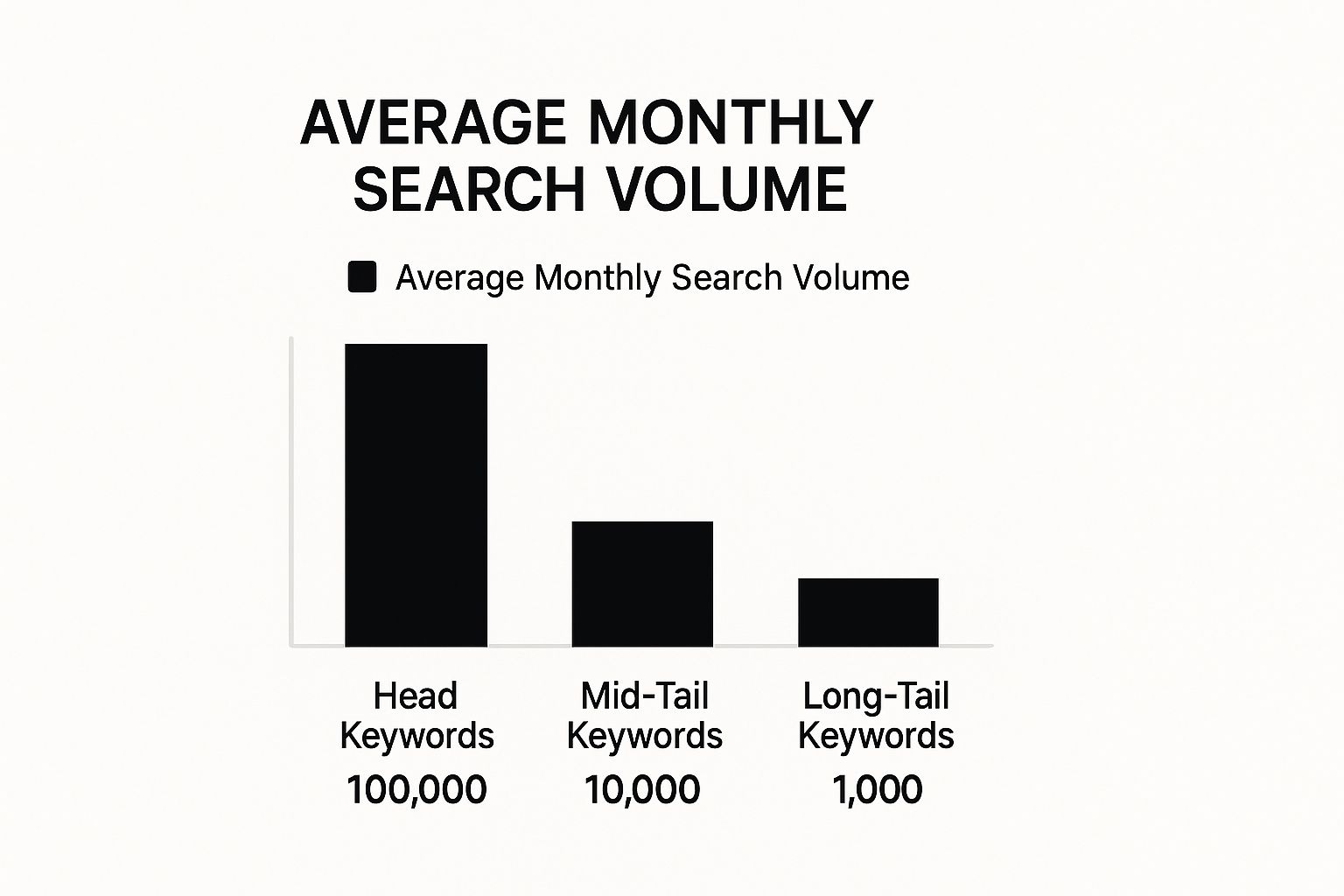
You can see that while a few "head" keywords have massive volume, the real opportunity for targeted, profitable ad groups often lies in the more specific mid-tail and long-tail terms.
The typical agency approach versus a focused consultant's method highlights a huge difference in strategy and, ultimately, results. The agency model prioritizes perceived effort, while the expert consultant focuses on efficiency and profit.
Here's how that plays out:
Keyword Strategy Step | Bloated Agency Method | Expert Consultant Method |
|---|---|---|
Keyword Grouping | Stuff dozens of semi-related terms into one ad group. | Create small, hyper-focused groups based on user intent. |
Ad Copy Creation | Write generic ads to cover all keywords in the group. | Craft specific ad copy that speaks directly to the searcher. |
Goal & KPI | Report on high-level metrics like clicks and impressions. | Optimize for Quality Score, conversion rate, and profit. |
Negative Keywords | Add negatives sporadically, often after wasting budget. | Proactively build and refine negative lists weekly. |
The difference is clear: one method is about looking busy, and the other is about making money.
Mapping Keywords for SEO Success
For SEO, the process is similar, but the focus shifts to building topical authority. Instead of ad groups, we map keyword clusters to specific pages on your website. Each core service or product page becomes the "hub" for a whole family of related search terms.
A blog post, for example, might target a cluster of informational keywords all centered around a specific customer problem. This tells Google that your website is an authority on that topic, helping you rank for a wide range of relevant queries, not just one.
The core difference is simple: Big agencies chase vanity metrics like search volume. As a consultant, I organize keywords around one thing—profit. A smaller, perfectly organized list will always outperform a massive, chaotic data dump.
Practical Tips for Managing Your List
Your keyword list should be a dynamic tool, not a static document you create once and forget about. Continuous refinement is essential for stopping wasted ad spend and uncovering new opportunities.
Deploy Negative Keywords Aggressively: In Google Ads, the Search Terms Report is your best friend. I'm in there weekly, hunting for irrelevant search queries to add as negative keywords. This instantly stops you from paying for worthless clicks.
Use Spreadsheets Strategically: You don't need fancy software. A simple spreadsheet is all you need to start. I use columns for the keyword, its primary theme (for ad groups or content clusters), user intent (informational vs. transactional), and the target URL.
Create a System for Refinement: Your market is always changing. I recommend dedicating time each month to review performance and look for new keyword trends. This active management is critical for staying ahead of the competition and understanding how to continuously improve your cost per acquisition.
Common Questions I Hear About Keyword Lists
Even with a solid game plan, a few questions always pop up when building a keyword list from scratch. After years in the trenches as a consultant, I've heard them all. Here are the straight-up, no-nonsense answers you need.
How Many Keywords Should I Actually Have?
This is the number one question I get, and the answer is always about quality, not quantity. Forget what you've heard about needing thousands of keywords.
A bloated list of 10,000 generic terms from some overpriced agency is pure vanity. It does nothing for your bottom line. I’d much rather work with a hyper-focused list of 200 high-intent keywords that I know will actually drive profit. My job is to grow your business, not to impress you with a massive, useless spreadsheet.
For a brand-new Google Ads campaign, I often start with just 20-50 highly targeted keywords per ad group. For SEO, it's about mapping tight, relevant keyword clusters to each page. The goal is never a big number; it's about finding the right keywords that signal someone is ready to pull out their wallet.
Should I Even Bother with Low-Volume Keywords?
Absolutely. In fact, this is one of the core differences between my strategy as a specialized consultant and that of agencies chasing vanity metrics. Low-volume, long-tail keywords are where the hidden profits are.
Think about a term like “emergency hvac repair for commercial building.” It might only get a handful of searches a month, but it has sky-high purchase intent and almost no competition.
While these terms won't bring in thousands of clicks, the few clicks they do bring are from highly qualified users deep in the buying cycle. A strategy that includes these niche terms is critical for capturing profitable leads that larger, less agile agencies consistently miss.
How Often Should I Update My Keyword List?
Your keyword list is a living, breathing document. It's not a "set it and forget it" task you check off once a year. While I recommend a formal review and refresh every quarter, the real work is constant and demands specialized attention.
This is where a dedicated consultant provides incredible value over a big, bloated agency juggling dozens of clients. You can read more about this crucial difference in my breakdown of why hiring a senior Google Ads consultant beats working with a bloated PPC agency.
My hands-on process involves:
Weekly: I'm in the Google Ads Search Terms Report, adding negative keywords to stop budget waste and spotting new opportunities before your competitors do.
Monthly: I'm tracking SEO ranking trends and identifying new content gaps to keep your organic presence moving up and to the right.
The market, your competition, and your customers are always changing. Your keyword strategy has to keep pace, or you’ll get left behind.
Ready to stop guessing and start building a keyword list that drives real profit? At Come Together Media LLC, I provide the one-on-one, expert Google Ads consulting that bloated, overpriced agencies simply can't match. Get your free consultation today and let's build a strategy that actually works.





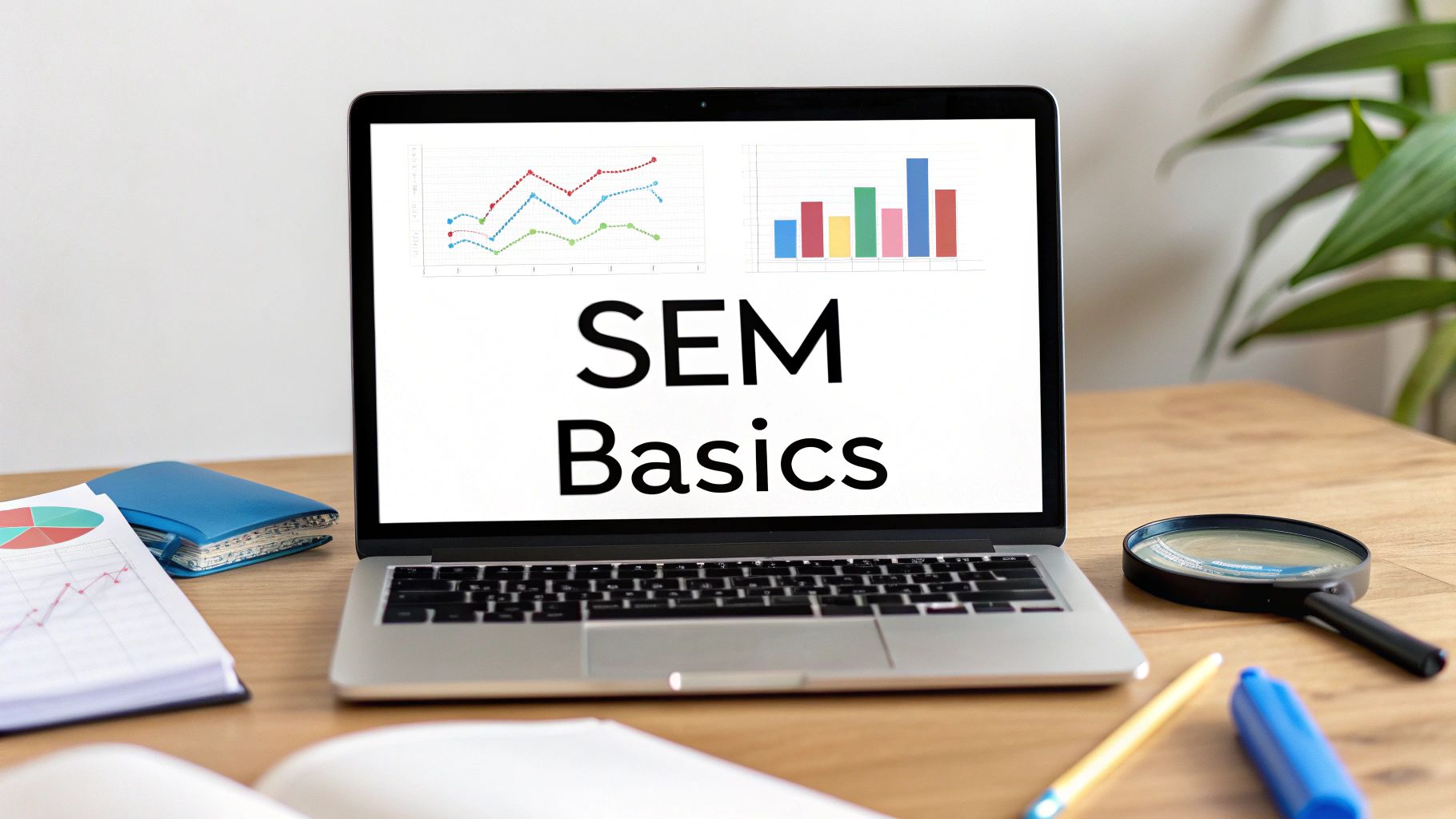


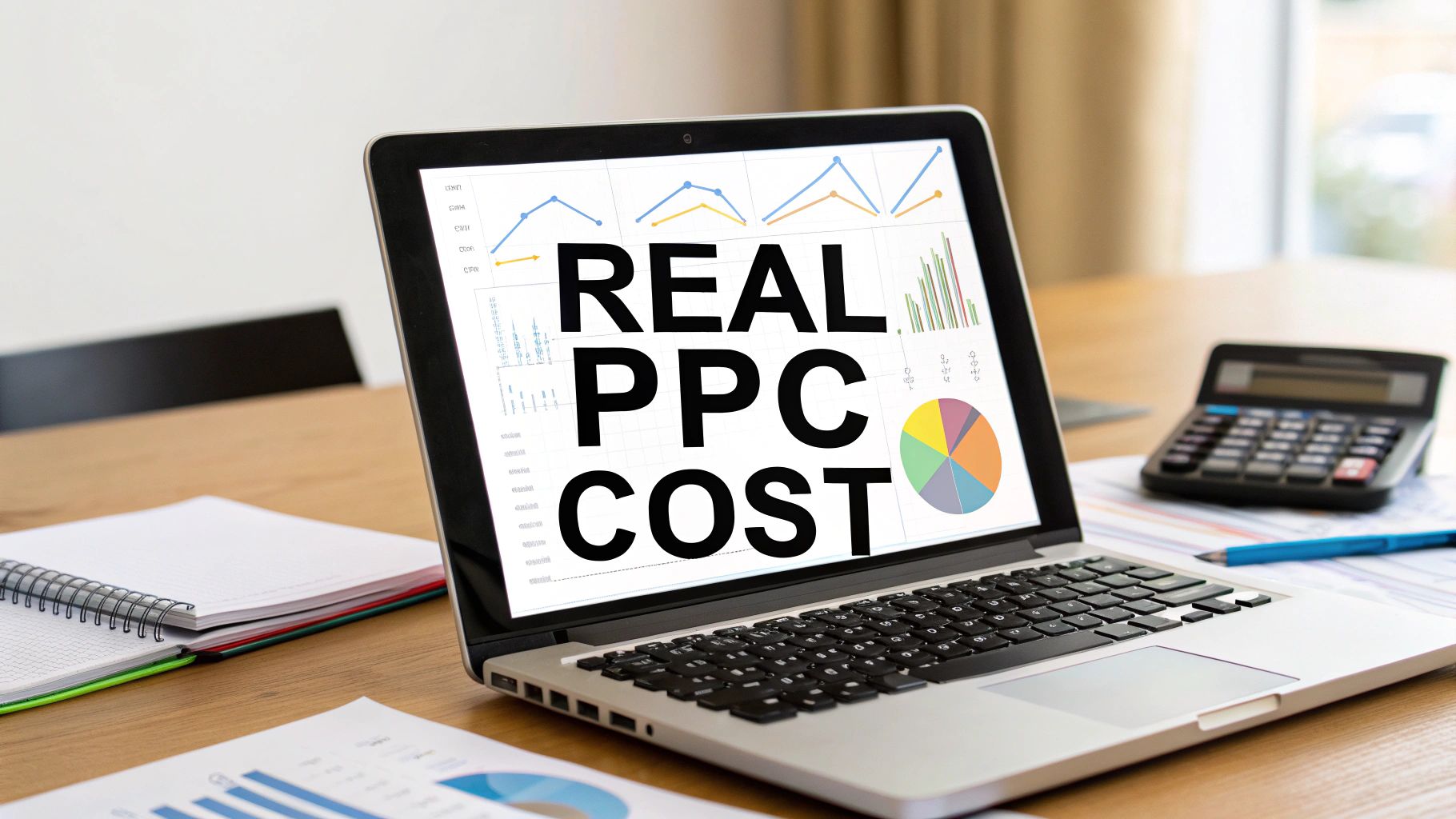
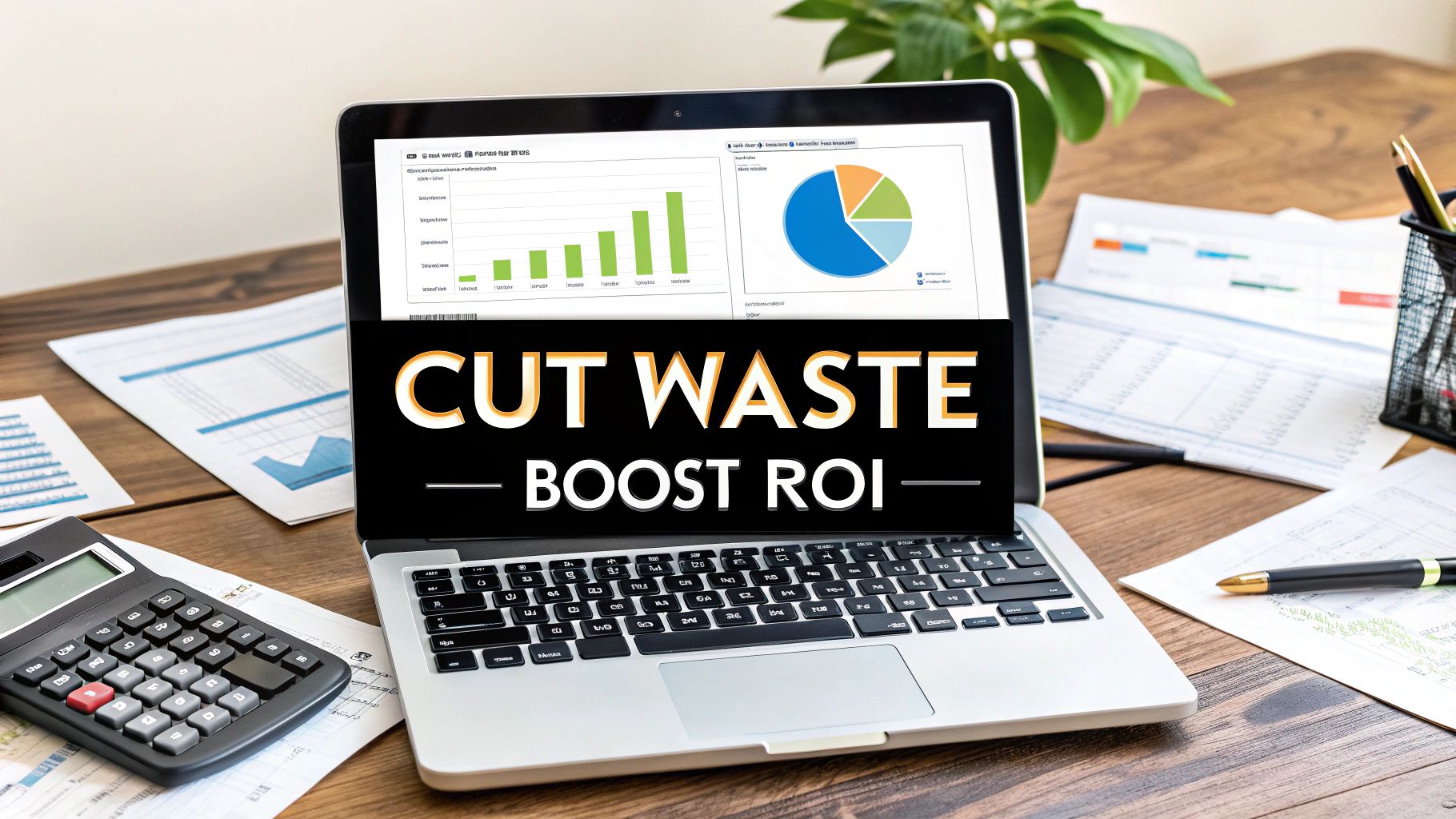
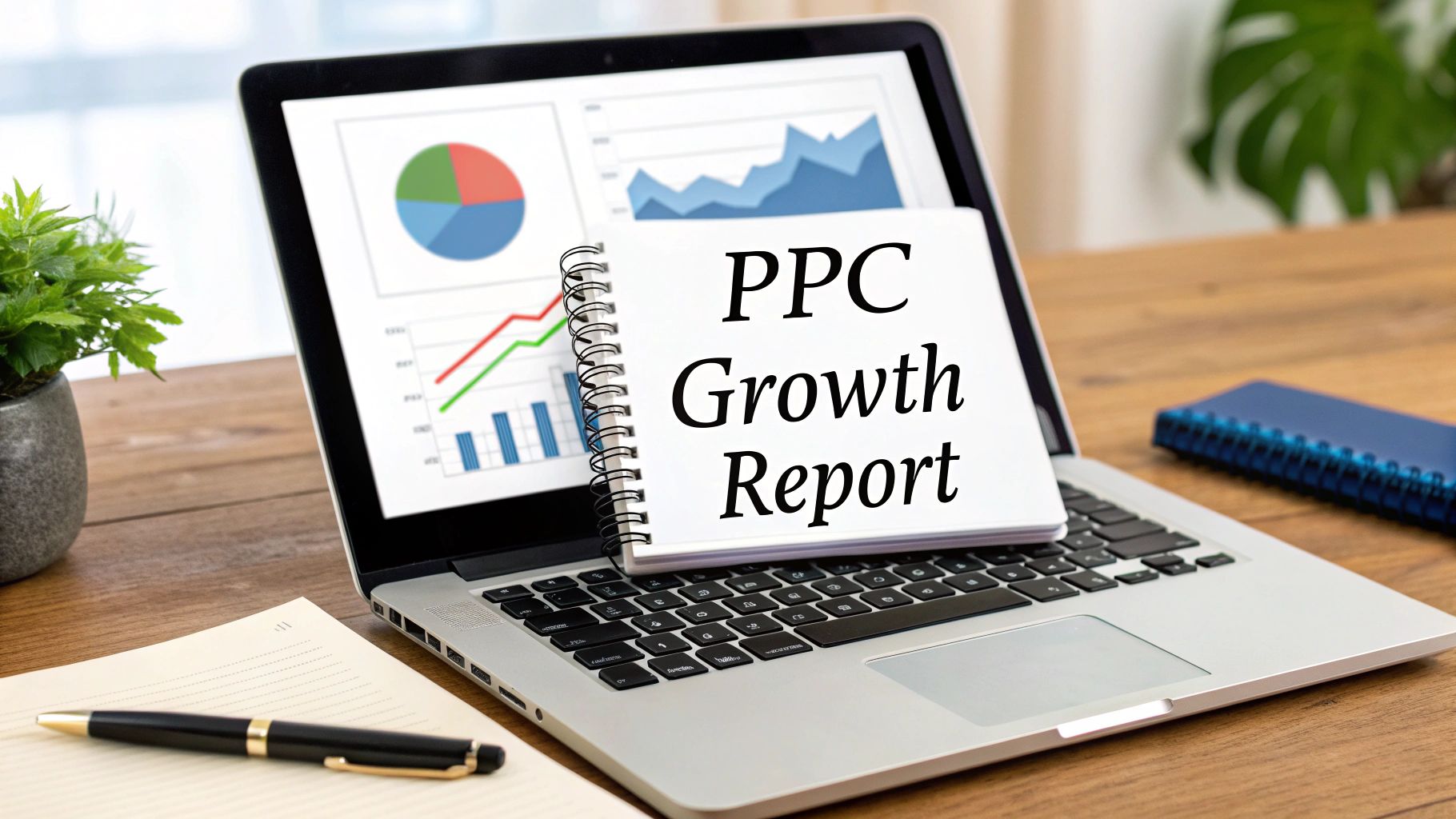
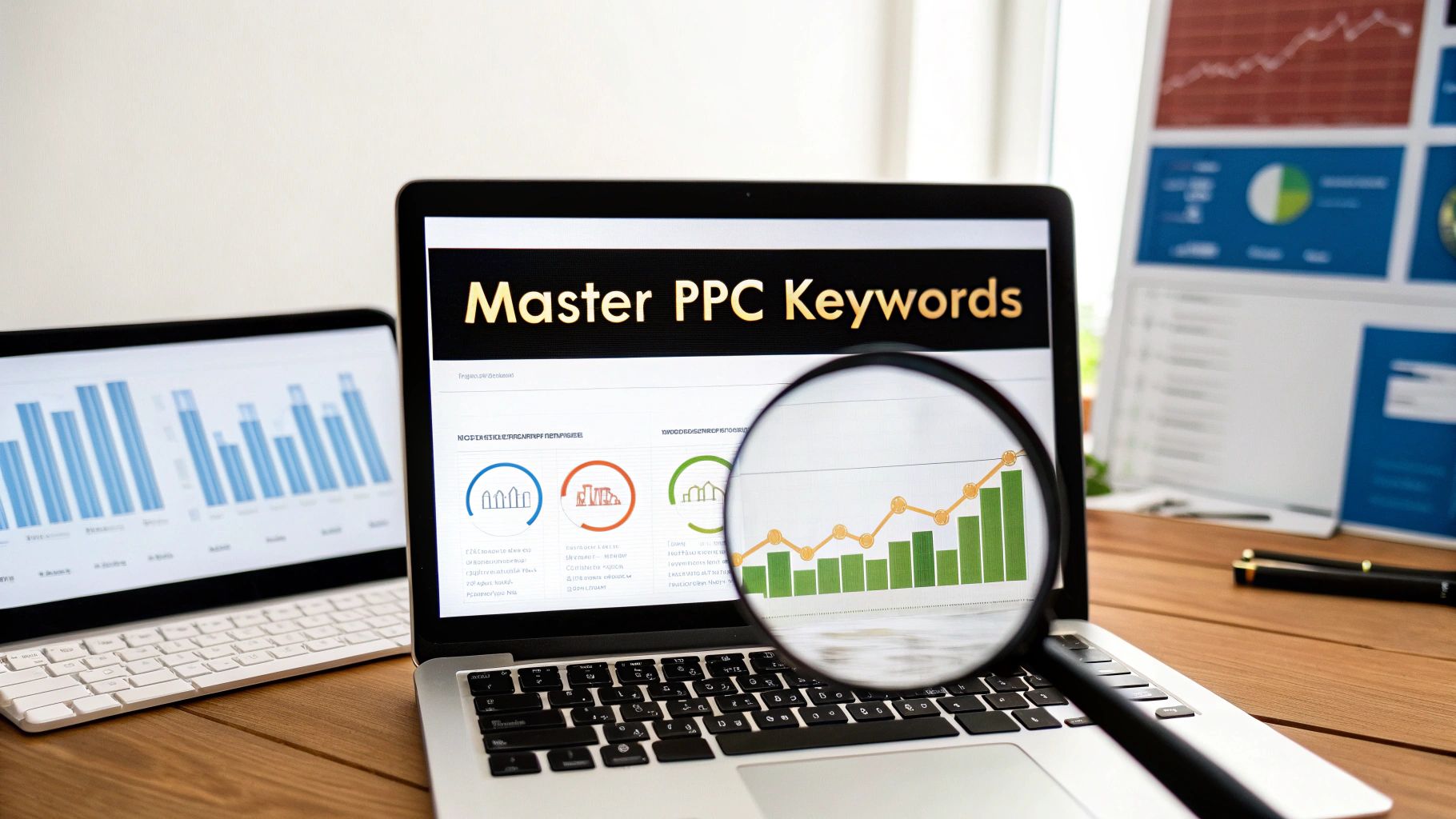
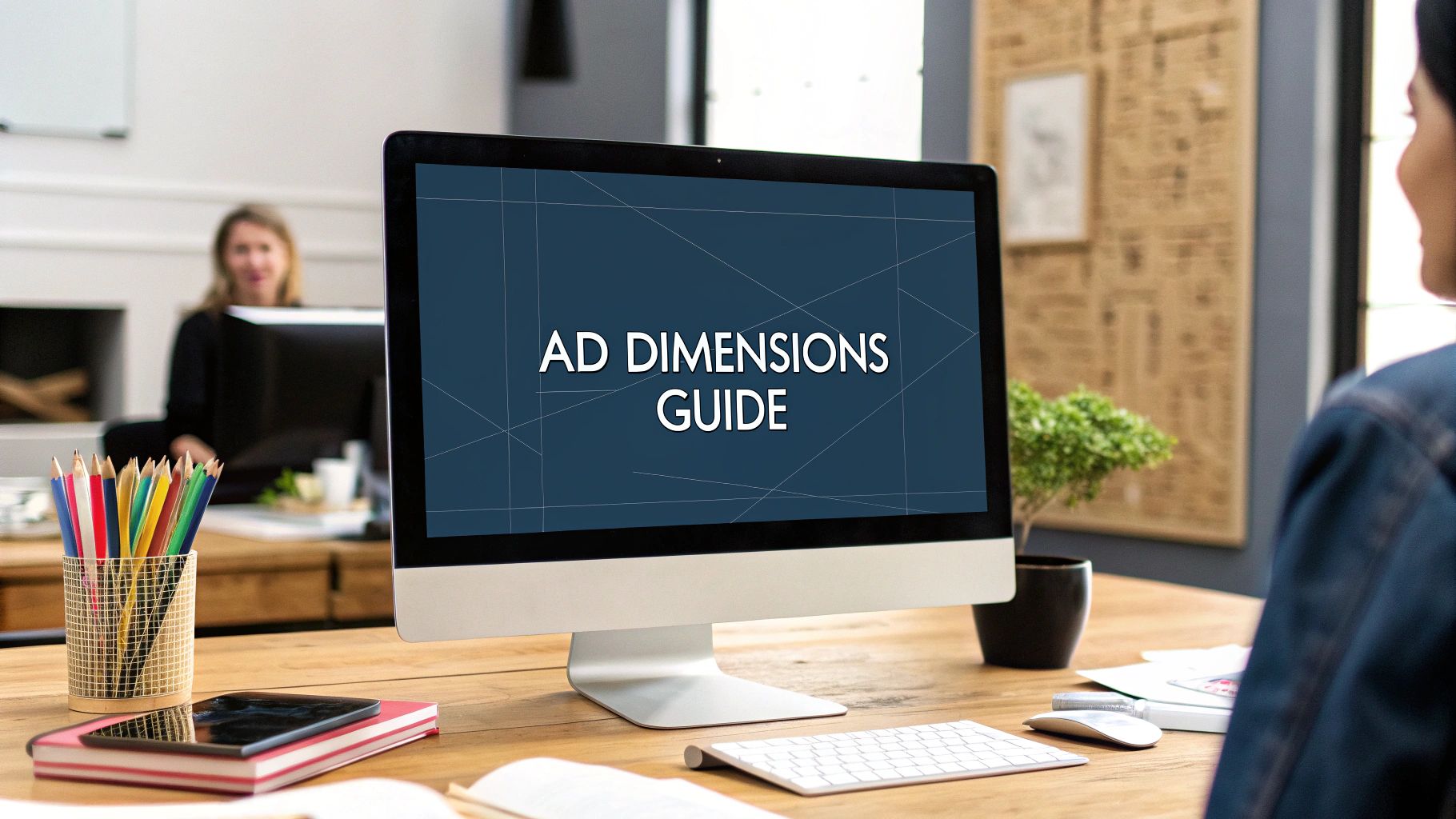
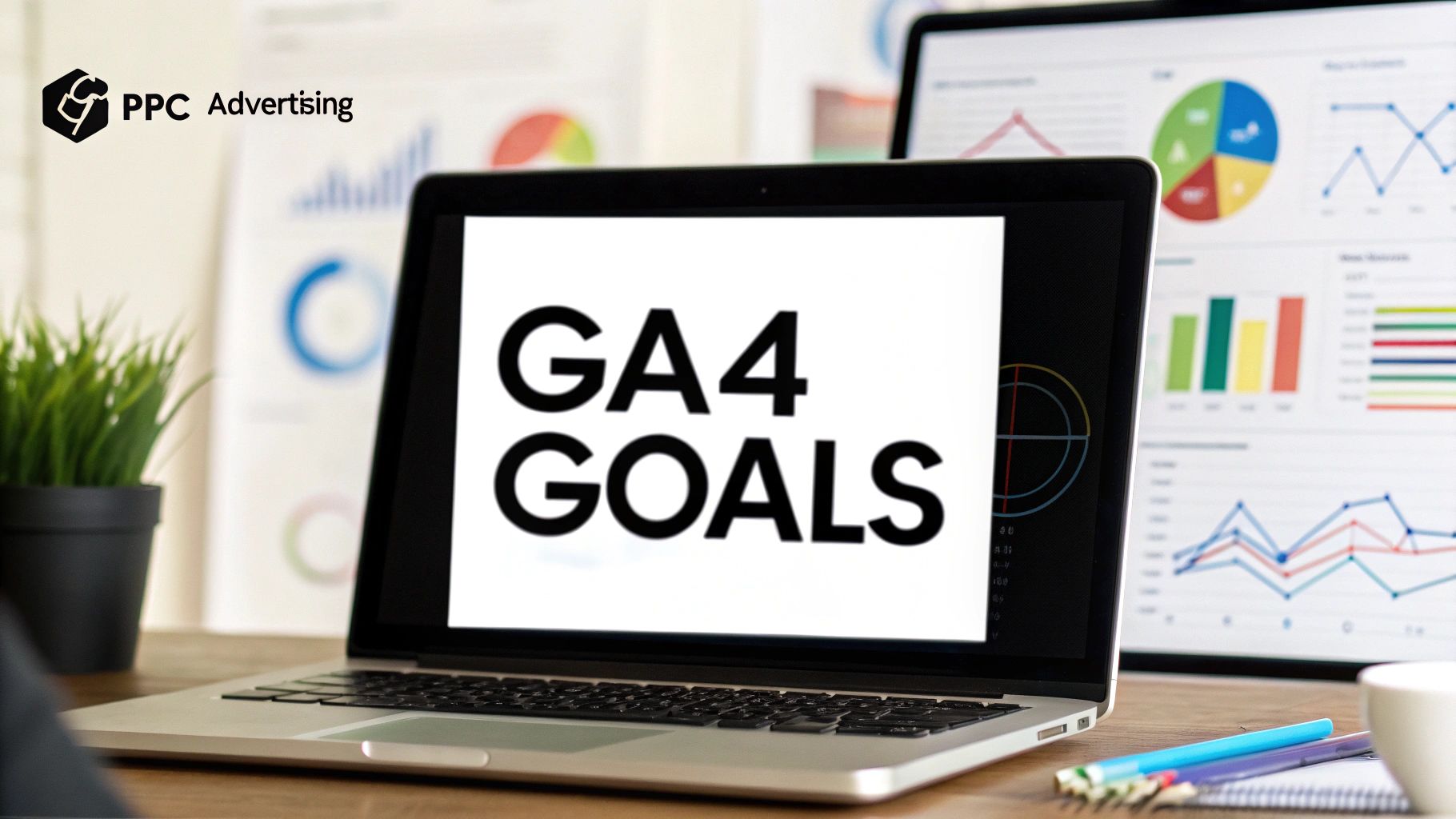
Comments